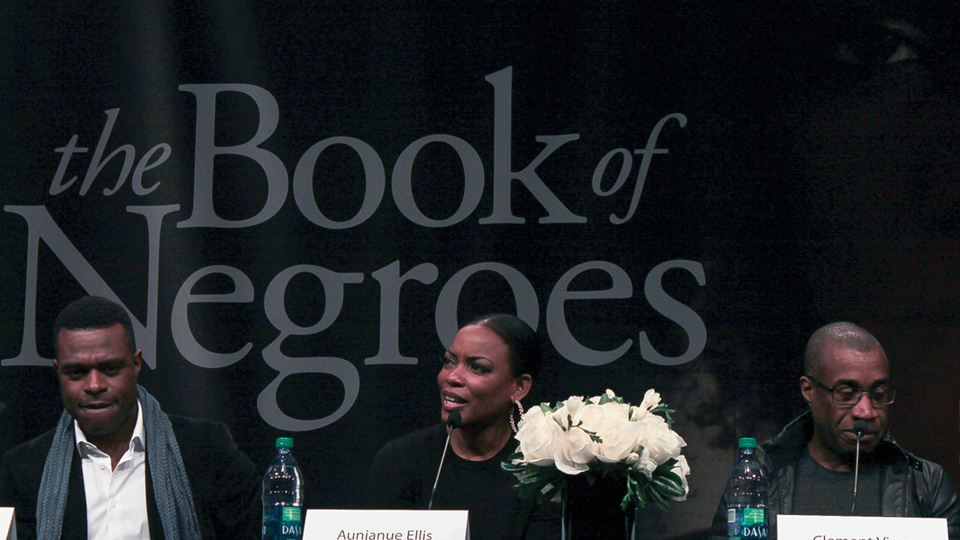If there is one thing that actress Aunjanue Ellis learned from playing character Aminata Dialo in the TV adaptation of The Book of Negroes, it is to be a warrior, not just for herself, but also for people in her community. Ellis reflects on this at a press conference at CBC headquarters in Toronto. In January, CBC, along with BET, will air a six-part mini-series based on the widely acclaimed novel by Canadian-American author Lawrence Hill.
“Reading has saved my life millions of times,” says Ellis. “To get to enjoy the book and then get to say the words and live the words outside of the dialogue, there’s joy in that. It may not be smiley joy, but there’s joy.”
Not only did Ellis have to embrace the many struggles Aminata endures throughout the novel, but she also had her own struggles while on set. A member of the audience brings up a conflict that arose between Ellis and a crewmember on set regarding her hair. Ellis has no issue addressing it.
“In that situation that I was in I had to explain myself. I had to explain my needs,” she says. “I had to explain what I was and what I am as an African-American woman, what I need with my hair, what I need with my body. I looked at it as an opportunity for both myself, and the person I was in the battle with, to grow. My hope is that happened.”
Listening to the panel of cast and production speak with media, one common theme prevails: experience. All seem to agree what a tremendous learning experience the project presented. Many admit to previously not knowing about the Black Loyalists. Screenwriter Clement Virgo shares he actually had an aversion to the word Negro and did not want to read the book as a result. Fortunately for him, he ran into a friend at a local bookstore who strong-armed him into the purchase. But still, the novel still sat untouched on Virgo’s coffee table for months. Once he did start reading it though, he was hooked and felt compelled to bring the story to life.
“What’s so great about the novel and the gift that Larry gave to us is that he infused all this history in this wonderful character, in this wonderful narrative.” – Clement Virgo
“I thought I knew about this world. I thought I knew about slavery. I thought I knew about this history and I thought I knew about Nova Scotia,” Virgo says. “What’s so great about the novel and the gift that Larry gave to us is that he infused all this history in this wonderful character, in this wonderful narrative.”
As a result of working on this project Virgo’s viewpoint on the word Negro has taken a complete 180-degree turn. “Now I can’t imagine the series being called anything else but The Book of Negroes, because for me the word Negro now means strength and power and dignity and someone who stands up for what they believe, so I cannot imagine it being called anything but The Book of Negroes.”
For author Lawrence Hill taking his work from novel to screenplay was a learning experience of different kind. “I had to adjust a lot,” he says. “I think one of the most important things is to not view your words as sacrosanct and not freak out at the idea your words and ideas and scenes would change or be dropped or sometimes be replaced by others that work better on the screen.”
Words & Photos By. Rebecca Akrasi-Sarpong





Comments are closed.